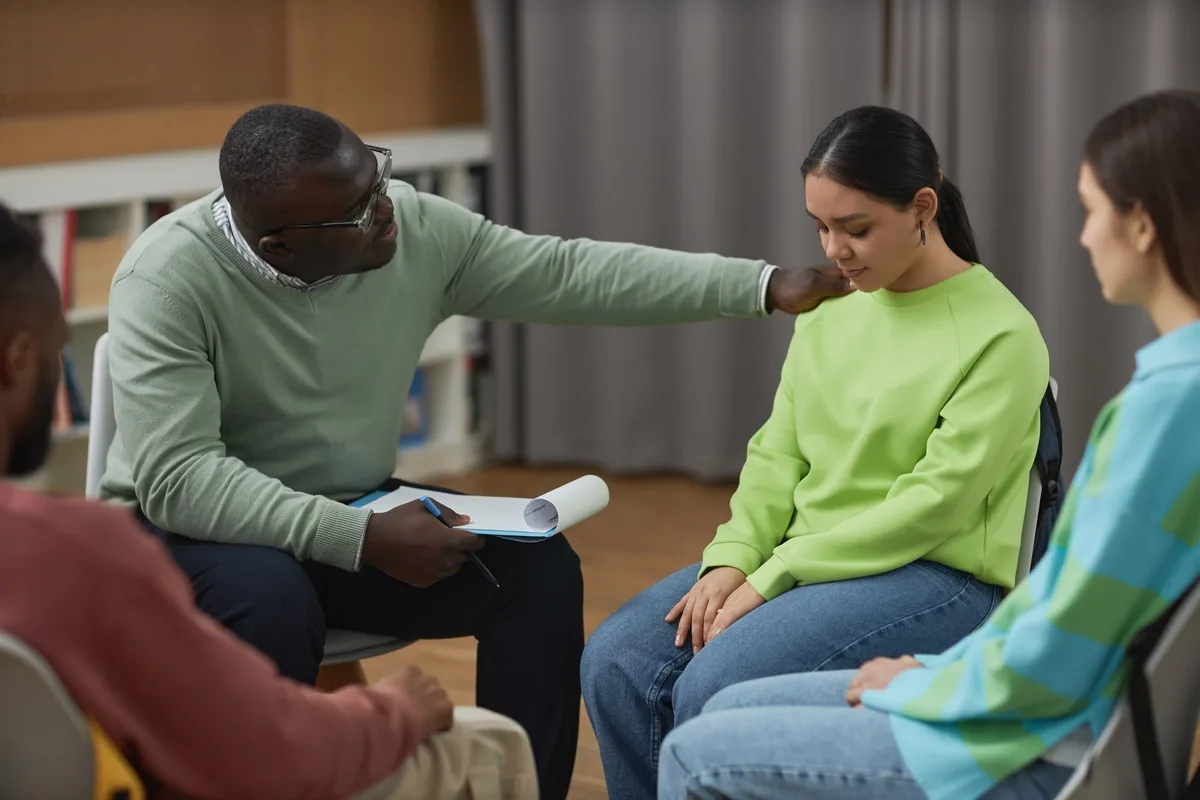24/7 Helpline:
(866) 899-111424/7 Helpline:
(866) 899-1114
Learn more about PTSD Treatment centers in Boardman
PTSD Treatment in Other Cities

Other Insurance Options

Excellus

Sliding scale payment assistance

Health Net

Highmark

Self-pay options

GEHA

Covered California

Premera

CareFirst

Coventry Health Care

Carleon

Cigna

Medical Mutual of Ohio

Optum

Aetna

Molina Healthcare

WellPoint

Access to Recovery (ATR) Voucher

Group Health Incorporated

Holman Group

Sperohealth
Sperohealth is a private rehab located in Boardman, Ohio. Sperohealth specializes in the treatment o...

PsyCare – Boardman Clinic
PsyCare – Boardman Clinic is a private rehab located in Boardman, Ohio. PsyCare – Boardman Clinic sp...

Travco Behavioral Health
Travco Behavioral Health offers outpatient services for people struggling with substance abuse or me...

Community Counseling Solutions
Community Counseling Solutions offers outpatient services for those individuals dealing with mental ...


















Community Counseling Solutions – Lakeview Heights
Community Counseling Solutions - Lakeview Heights is a residential treatment program for individuals...









